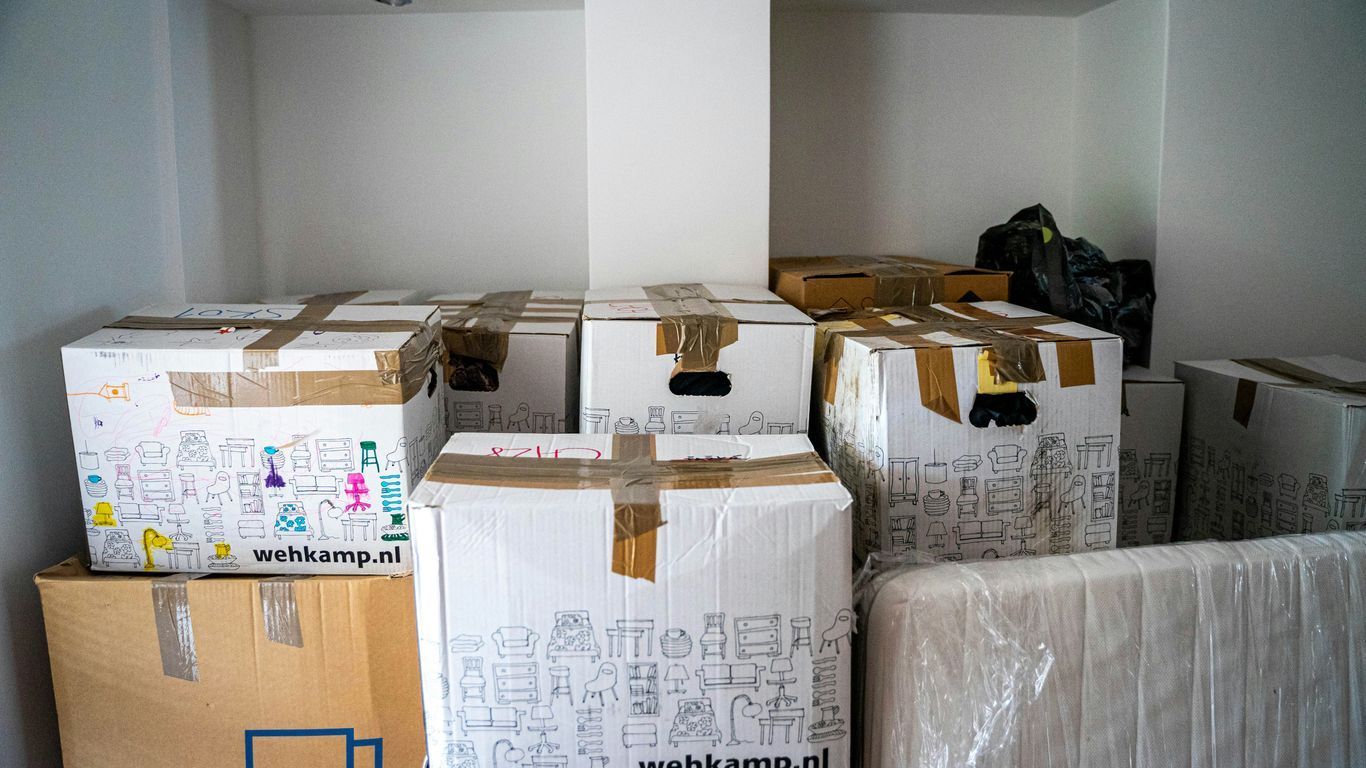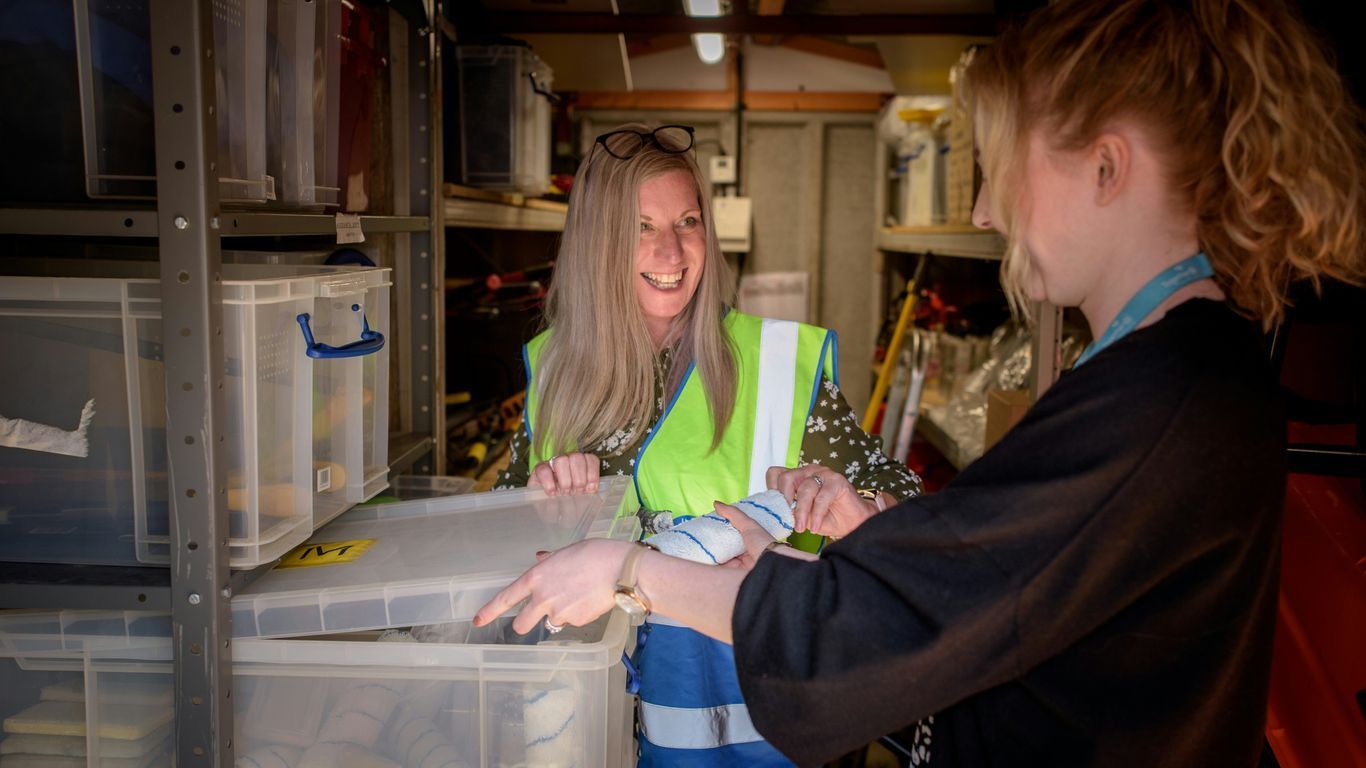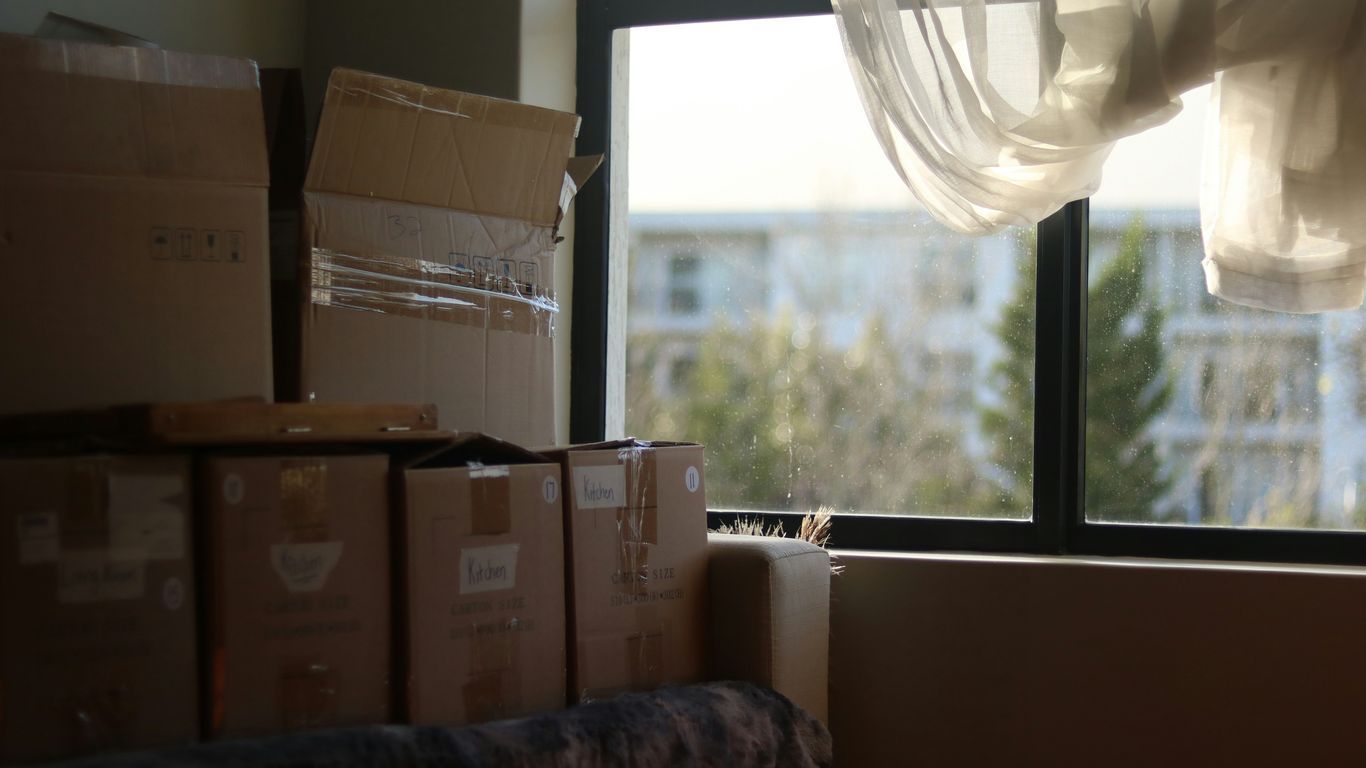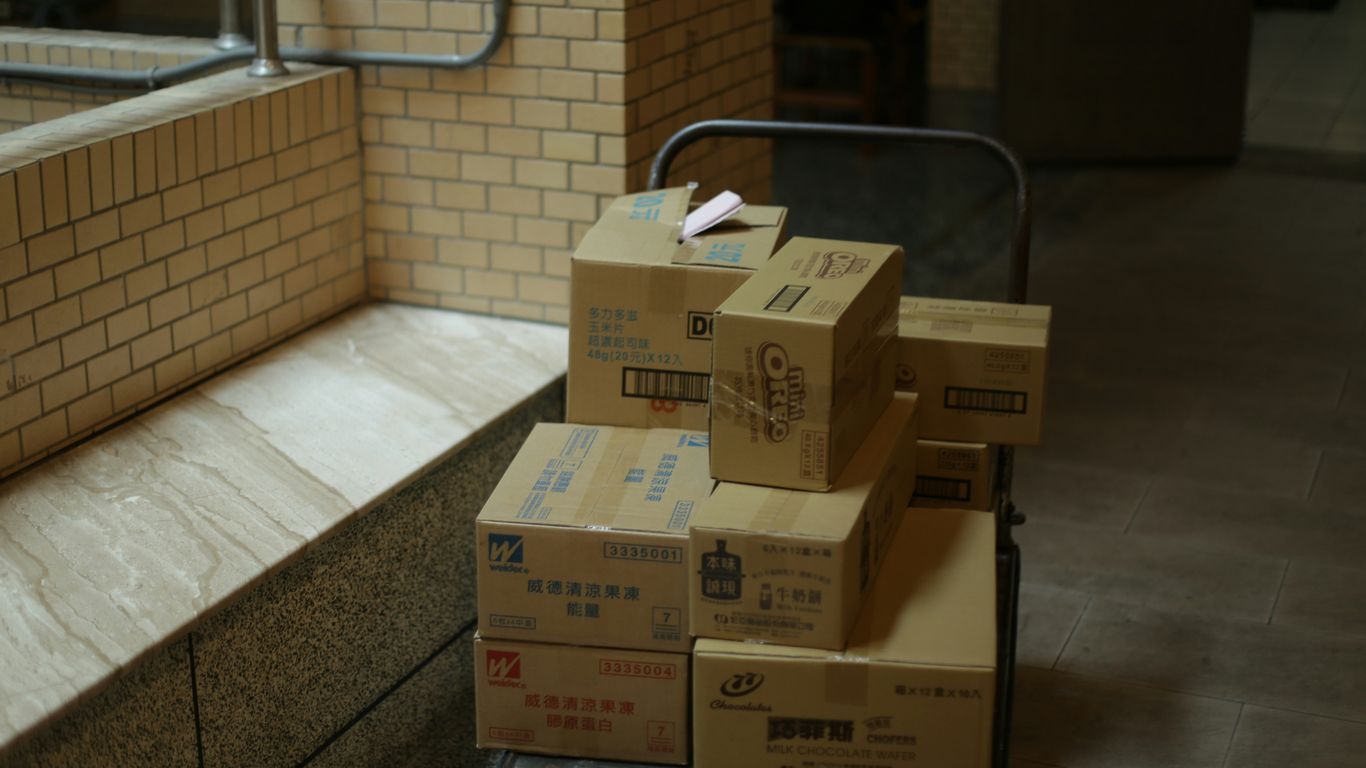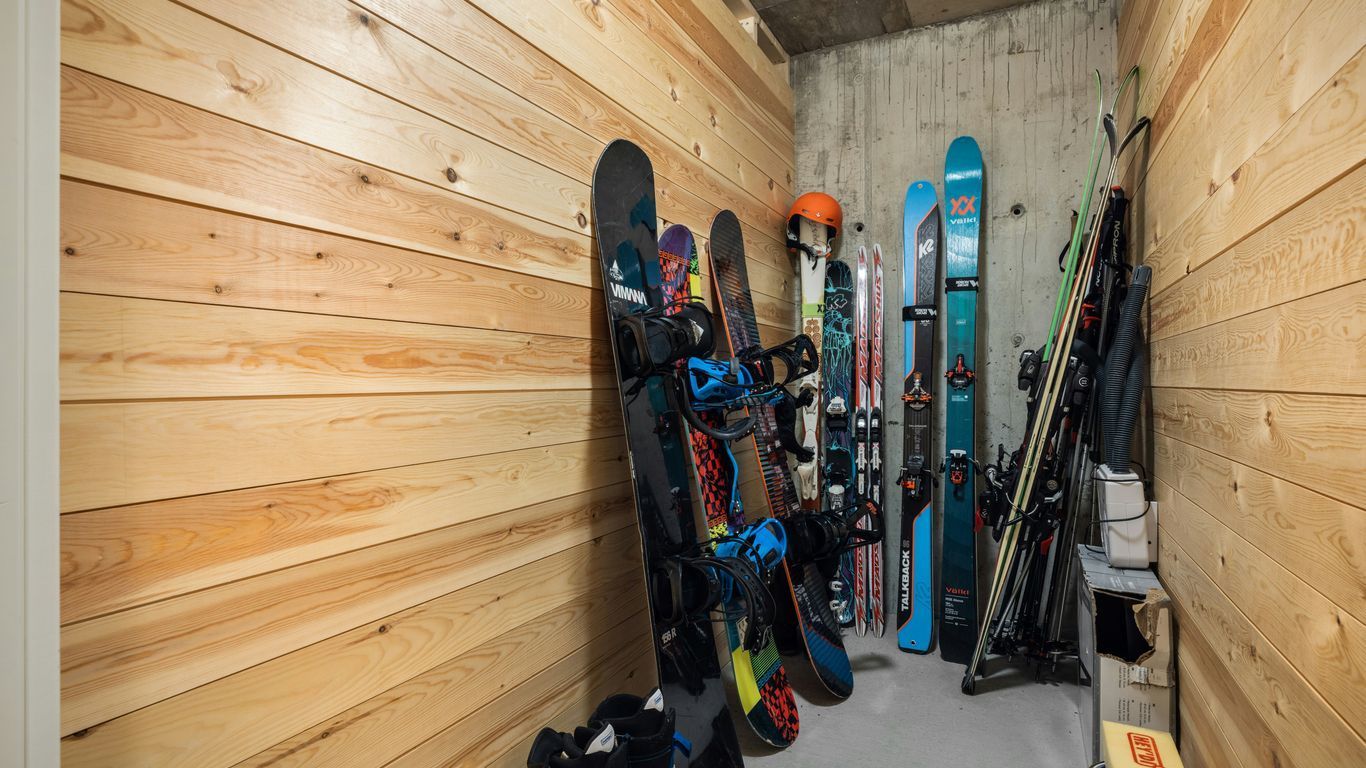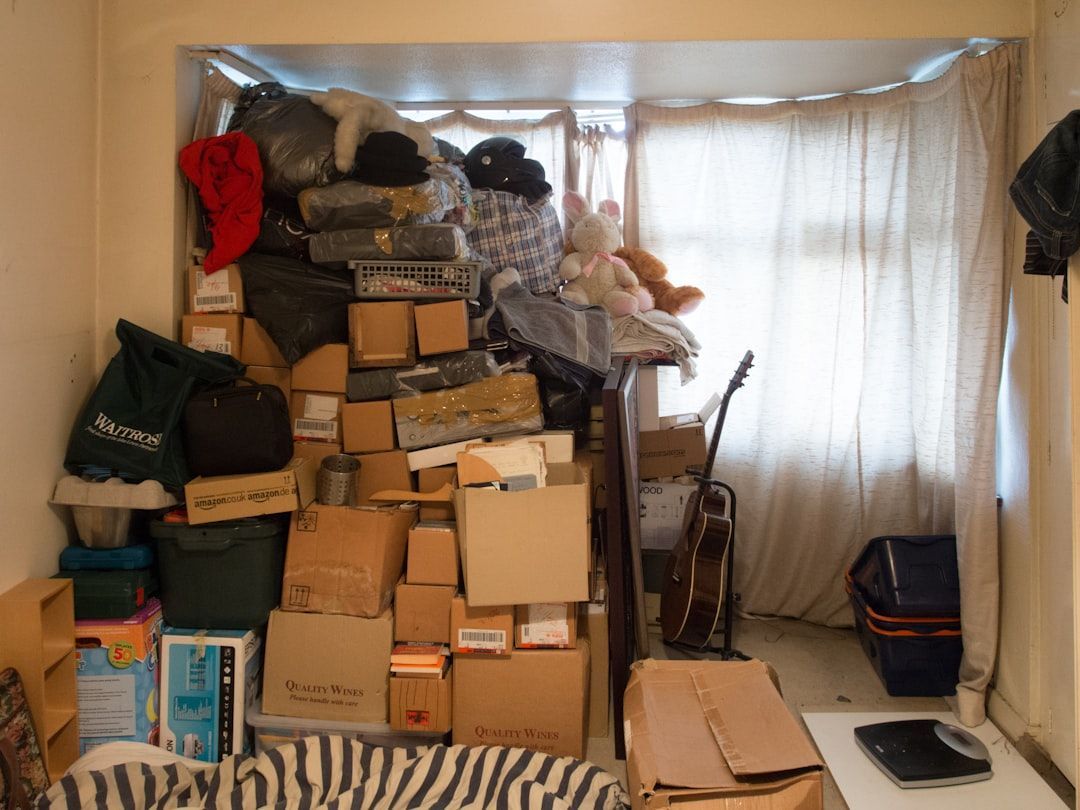Self-Employed? Store Your Work Tools in a Unit That Works for You
Being self-employed means you're in charge of a lot, including how you store your work gear. Whether you're a contractor needing space for tools or an online seller with inventory, finding the right self-employed business storage in Campbellsville, KY, can make a big difference. It's not just about having extra room; it's also about understanding how that storage can save you money on your taxes. Let's break down how to make your storage work for your business.
Key Takeaways
- Self-employed individuals and small business owners can often deduct storage unit costs if the unit is used exclusively for business purposes, like storing tools or inventory.
- Tools used for your trade that are common and helpful for your work are generally considered deductible business expenses.
- Items with a lifespan of less than one year can usually be written off in the year you buy them, while longer-lasting assets may need to be depreciated over time.
- The IRS allows deductions for storage units used for business, rental property items, or for active-duty military personnel during a permanent change of station move.
- Keeping detailed records, like receipts and inventories, is vital for claiming storage unit and tool expenses as deductions and staying compliant with tax regulations.
Understanding Deductible Business Storage
So, you're self-employed, running your own show, and you've got stuff. Lots of stuff. Tools, materials, inventory, maybe even some equipment that just doesn't fit in your home office or garage. You're probably wondering if that storage unit you're renting can actually save you some money come tax time. The good news is, it often can, but there are definitely rules.
Who Qualifies for Storage Unit Deductions?
Generally, if you're using a storage unit specifically for your business, you're in a good spot. This applies to folks like:
- Contractors storing tools and supplies.
- E-commerce sellers keeping inventory for their online shops.
- Event planners or photographers stashing props and equipment.
- Real estate agents holding onto staging items.
If you own rental properties, you can also deduct storage costs if the unit holds items for those properties, like furniture for a rental unit or maintenance supplies.
Business Use of Storage Units
This is the big one. For a storage unit's cost to be deductible, the IRS wants to see that it's an ordinary and necessary expense for your business. Think about it: if you can't do your job effectively without storing your equipment or materials somewhere, then it's likely necessary. Ordinary means it's a common practice in your line of work. The key here is exclusivity – the unit must be used solely for business purposes. If you mix personal items with business items in the same unit, you generally can't claim the deduction for that unit.
Personal Storage vs. Business Storage
This is where a lot of people get tripped up. Storing your personal belongings, like seasonal decorations, old furniture, or family heirlooms, in a storage unit? That's a personal expense, and it's not deductible. Even if you're moving for work, unless you're active-duty military, the moving expense deduction for storage was largely eliminated a few years back. So, if your storage unit is holding your winter coats and your kid's old toys, it's not going to be a tax write-off. It's all about keeping that business-related inventory or equipment separate and accounted for.
Maximizing Your Self-Employed Business Storage
So, you've got your tools, your inventory, maybe even some important paperwork that just doesn't fit comfortably in your home office or workshop. That's where a storage unit can really come in handy. But how do you make sure you're getting the most out of it, both practically and financially? Let's break it down.
Choosing the Right Unit for Your Needs
Picking the right size is key. Too small, and you're cramming things in, risking damage. Too big, and you're just paying for empty space. Think about what you'll be storing:
- Tools and Equipment: Consider the dimensions of your largest items. Do you need a unit tall enough for shelving or long enough for lumber?
- Inventory: If you're an e-commerce seller, how much stock do you anticipate holding? Think about how you'll organize it for easy access.
- Documents and Records: If it's just files, a smaller, climate-controlled unit might be perfect.
Also, think about accessibility. Do you need 24/7 access, or will standard business hours suffice? Climate control is another factor; if you're storing sensitive materials or electronics, it's probably worth the extra cost.
Keeping Your Business Tools Secure
Your tools are your livelihood, so keeping them safe is non-negotiable. A secure storage unit is a vital part of protecting your business assets. Look for facilities with:
- Good lighting around the property.
- Regular security patrols or on-site staff.
- Individual unit alarms and robust lock systems.
- Controlled access, like gate codes or key card entry.
It's also a good idea to get a high-quality lock for your unit, even if the facility provides one. And don't forget to check your homeowner's or renter's insurance policy to see if your business items are covered while in storage, or consider getting specific insurance for your stored goods.
Benefits of Off-Site Storage for Campbellsville Businesses
For businesses operating in and around Campbellsville, an off-site storage unit offers a lot of advantages. It frees up valuable space in your home or primary business location, which can make your workspace more efficient and less cluttered. This separation can also help maintain a clear distinction between your personal and business life, which is always a good thing. Plus, it provides a dedicated, secure place for items that might not be needed daily but are still important for your operations. This can really streamline how you manage your business assets and keep things organized. storage units offer flexible and cost-effective solutions for various business needs.
Storing business items off-site can significantly reduce the risk of damage from things like home renovations, accidental spills, or even just everyday wear and tear in a busy home environment. It also means you're not taking up space that could be used for other purposes, like a dedicated client meeting area or simply more comfortable living space.
Claiming Storage Unit Expenses on Your Taxes
So, you've got a storage unit for your business, and you're wondering if you can write off the cost. The good news is, usually, you can, but there are some specific rules to follow. It's not as simple as just saying 'I stored stuff.' The IRS wants to see that the expense was both ordinary and necessary for your business operations.
Reporting Storage Costs as Business Expenses
If your storage unit is strictly for business use, you'll typically report the costs as an 'Other Expense' on Schedule C (Form 1040) if you're self-employed. Think of it like any other operational cost, similar to paying for office supplies or internet service. It's a legitimate business expense if it helps you run your business.
Essential Records for Tax Deductions
Keeping good records is super important here. The IRS might ask for proof that your storage unit is actually for business. So, you'll want to hold onto:
- All rental agreements and receipts from the storage facility.
- An inventory list of everything you're storing. This helps show what's inside and why it's there for your business.
- Any documentation that shows the business need for the storage, like contracts or order forms if you're storing inventory.
The key is to be able to clearly demonstrate that the storage unit directly supports your business activities. If it's just a place to stash things you might need someday, it's probably not deductible.
Avoiding Mixed-Use Storage Pitfalls
This is where a lot of people get tripped up. If you store both business and personal items in the same unit, the IRS generally says you can't deduct any of the cost. It's an all-or-nothing situation for a single unit. If you have personal items mixed in with your business tools or inventory, that unit becomes a personal expense, not a business one. To get around this, you'd need separate units – one exclusively for business and another, if needed, for personal items. That way, you can clearly deduct the business unit's cost without any issues.
Tools and Equipment: Deductible Business Assets
What Constitutes an Ordinary and Necessary Tool?
When you're self-employed, figuring out what you can write off can feel like a puzzle. For tools and equipment, the IRS has a couple of main ideas: they need to be "ordinary" and "necessary" for your business. Think about it – "ordinary" means it's a common expense in your line of work. If most people in your field use a certain tool, it's probably ordinary. "Necessary" just means it's helpful and appropriate for your job. So, if you're an electrician, wire strippers are definitely necessary. If you're a mechanic, a good set of wrenches is a must-have.
- Common in your industry: Is this a tool most professionals in your field use?
- Helpful for your work: Does this tool make your job easier or allow you to do it properly?
- Appropriate for your trade: Does it fit the kind of work you do?
It's important to keep a clear separation between tools you use for business and anything you might use for personal projects. If a tool can be used for both, it might get tricky to deduct the full cost, especially if it's not primarily for your business.
Deducting Tools with Short Lifespans
This is where things get a bit simpler. If you buy a tool that you expect to use up or replace within a year, you can usually deduct the entire cost as a business expense in the year you bought it. This is pretty straightforward. Think of things like specialized drill bits that wear out quickly, certain types of safety gear that have a limited lifespan, or even consumables like specific cleaning agents for equipment. As long as it's directly related to your business and doesn't last more than a year, you can typically claim the full amount.
Navigating Depreciation for Long-Life Tools
Now, for the bigger ticket items, the ones that are built to last – like a heavy-duty workbench, a specialized diagnostic machine, or a large piece of equipment – the rules change. These are considered assets. Instead of deducting the whole cost at once, you spread that deduction out over several years. This process is called depreciation. The IRS has specific ways to figure out how much you can deduct each year. It can get a little complicated, especially with different types of assets and rules that change, so keeping good records is key here.
- Identify the asset: Determine if the tool or equipment has a useful life of more than one year.
- Determine its cost: Keep the receipt or invoice.
- Choose a depreciation method: Consult with a tax professional to select the most beneficial method.
It's always a good idea to talk to a tax professional when you're dealing with these longer-life assets. They can help you understand the best way to handle depreciation and make sure you're following all the IRS guidelines correctly. This can save you a lot of headaches and potentially more money in the long run.
Strategic Tax Benefits for Self-Employed Professionals
Being self-employed means you're in charge, and that includes managing your taxes. Luckily, there are some smart ways to reduce your tax bill, and understanding them can make a big difference. It's not just about claiming expenses; it's about using specific tax rules to your advantage.
Leveraging De Minimis Safe Harbor Elections
This is a really handy rule that lets you immediately deduct the cost of certain business assets, like tools or equipment, in the year you buy them. The key is that the cost per item must be below a certain threshold, which is currently $2,500 per item. If your tools or supplies fall under this limit, you don't have to worry about depreciating them over several years. You can just write off the full cost right away. It simplifies things a lot and gives you a tax break sooner.
Understanding Section 179 Provisions
Section 179 is another powerful tool for self-employed folks. It allows you to deduct the full purchase price of qualifying new or used business equipment and software in the year you put it into service. Think machinery, computers, or even business vehicles. There are limits on how much you can deduct and the total amount of equipment you can purchase, but for many small businesses, it's a great way to get a significant tax deduction for major purchases.
It's important to remember that these provisions are designed to help businesses invest in themselves. By taking advantage of them, you're not just saving on taxes; you're also making it more affordable to acquire the assets your business needs to grow and operate efficiently.
The Importance of Professional Tax Guidance
Look, tax laws can get complicated, and trying to figure out all these deductions and elections on your own can be overwhelming. That's where a good tax professional comes in. They can help you understand which deductions you qualify for, how to properly claim them, and make sure you're following all the IRS rules. Getting professional advice can save you money and prevent costly mistakes down the line. It’s an investment in your business's financial health.
Beyond Tools: Other Deductible Business Expenses
So, you've got your tools covered, but what else can you write off to keep more of your hard-earned cash? Turns out, there's a whole lot more. Think about all the other things that keep your business running smoothly.
Vehicle and Home Office Deductions
If you use your car for business, like driving to client sites or picking up supplies, you can deduct those costs. You've got two ways to do this: the standard mileage rate, which is a set amount per mile, or the actual expense method, where you track gas, repairs, insurance, and so on. Keeping good records is key for either method. And if you work from home, that dedicated space might qualify for a home office deduction. This can cover a portion of your rent or mortgage, utilities, and even internet service, as long as that space is used exclusively and regularly for your business. It's not just about having a desk in the corner; it needs to be a proper business zone.
Deducting Professional Fees and Memberships
Paying for professional services or joining industry groups? Those can be deductible too. Think about accountants who help you sort out your taxes, lawyers for contracts, or consultants who give you business advice. If you pay them over $600 in a year, you'll need to file a 1099-NEC, unless you pay via credit card or PayPal. Also, those professional memberships you pay for? If they help you stay current in your field or connect with others, the dues are usually deductible. It's a way to invest in your business and get a tax break.
Maximizing Deductions to Minimize Tax Liability
It's not just about tools; it's about looking at your entire business operation. Every little bit counts when it comes to reducing your tax bill.
- Business use of cell phones: If you use your personal phone for work calls, texts, or emails, you can deduct a portion of the monthly bill.
- Travel expenses: When you travel for business, things like lodging, meals, and transportation can often be written off.
- Equipment rental: Need a special tool for a one-off job? Renting it is usually a deductible expense.
The goal here is to be thorough. Don't leave money on the table by forgetting about expenses that are directly related to running and growing your business. Being organized with your receipts and understanding what qualifies can make a big difference come tax season.
Running a business involves more than just the big stuff. Think about everyday costs like office supplies, travel for work, or even certain fees. These smaller expenses can add up and might be deductible too! Want to make sure you're not missing out on any savings? Visit our website to learn more about all the business expenses you can claim.
Wrapping It Up: Smart Storage for Your Trade
So, you've got your tools, and you need a place to keep them. Thinking about a storage unit? It makes sense, especially if your home is getting a bit crowded. Just remember, if you're using that unit for your business, keeping your work gear and supplies organized there can actually save you money come tax time. It’s not just about having a tidy space; it’s about making sure your business expenses are accounted for properly. Keep good records of what’s in there and why it’s for work, and you’ll be in a much better spot when tax season rolls around. It’s a simple step that can really help manage your business finances better.
Frequently Asked Questions
Can I write off the tools I use for my job?
Yes, if you're self-employed, you can often write off tools that are necessary for your work. Think of things like specialized equipment for mechanics or electricians. However, if you're a regular employee, you generally can't deduct these costs anymore unless your employer reimburses you.
What makes a tool 'ordinary and necessary' for my business?
A tool is considered 'ordinary' if it's a common expense in your field. It's 'necessary' if it's helpful and appropriate for your job. Basically, if you need it to do your work safely and effectively, it likely qualifies.
Can I deduct tools that I also use for personal stuff?
It's best to keep your work tools separate from personal items. The IRS prefers that deductible tools are used strictly for business. If a tool can be used for both, it might not be fully deductible unless you can show it's primarily for work.
How do I claim the cost of tools on my taxes?
For tools that last less than a year, you can usually deduct their full cost in the year you bought them. For tools that last longer, you'll likely need to figure out depreciation, which means deducting a portion of the cost each year over its useful life. It's a good idea to keep all your receipts and records!
Is a storage unit tax-deductible for my business?
Yes, if you use the storage unit exclusively for your business needs, like storing inventory or equipment. If you mix personal items with business items in the same unit, you usually can't deduct the cost.
What other business expenses can I deduct?
Besides tools and storage, you might be able to deduct costs for your business vehicle, a portion of your home office expenses, professional development like memberships, and even certain business-related travel. Talking to a tax professional can help you find all the deductions you're eligible for.

